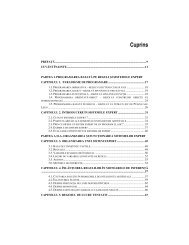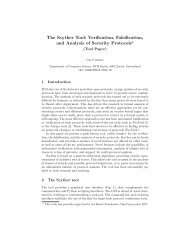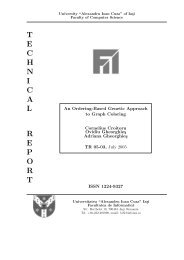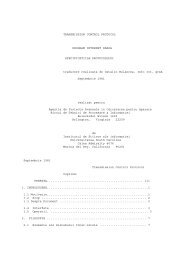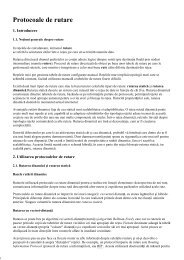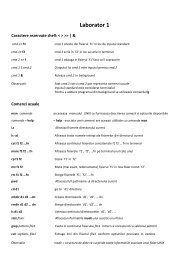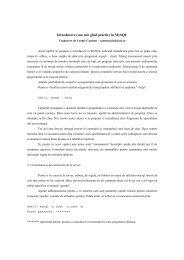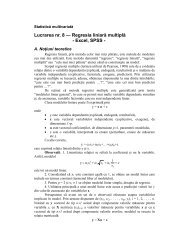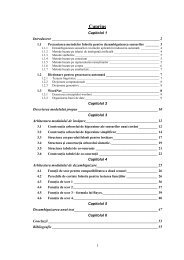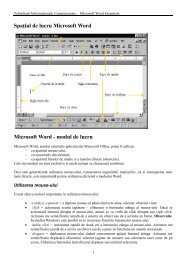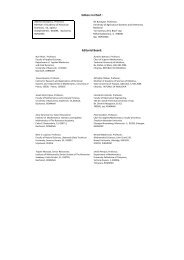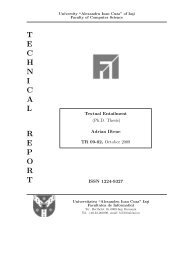Full document: PDF - Profs.info.uaic.ro - Universitatea Alexandru ...
Full document: PDF - Profs.info.uaic.ro - Universitatea Alexandru ...
Full document: PDF - Profs.info.uaic.ro - Universitatea Alexandru ...
Create successful ePaper yourself
Turn your PDF publications into a flip-book with our unique Google optimized e-Paper software.
Learning to Un<strong>ro</strong>ll Loops Optimally<br />
S¸tefan Ciobâcă<br />
LSV, Ecole Normale Supérieure Cachan<br />
and CNRS<br />
94235 Cachan, France<br />
ciobaca@lsv.ens-cachan.fr<br />
Liviu Ciortuz<br />
Department of Computer Science<br />
“Al. I. Cuza” University of Iasi<br />
700483 Iasi, Romania<br />
ciortuz@<st<strong>ro</strong>ng>info</st<strong>ro</strong>ng>.<st<strong>ro</strong>ng>uaic</st<strong>ro</strong>ng>.<strong>ro</strong><br />
Abstract<br />
Every few months new types of hardware are released. Compiler writers face<br />
the challenging task of keeping the compiler optimizations up-to-date with the latest<br />
in hardware technology. In this paper we apply machine learning techniques<br />
to predict the best un<strong>ro</strong>ll factors for loops, using GCC and the x86 architecture for<br />
our experiments. We show that, depending on the machine learning tools used, we<br />
get similar or slightly better performance than the native GCC loop optimizer. Our<br />
result shows that machine learning techniques can be used to automatically train<br />
the heuristic that computes the un<strong>ro</strong>ll factor for loops, saving time for compiler<br />
manufacturers and p<strong>ro</strong>viding better performance in the case of scientific computations.<br />
1 Int<strong>ro</strong>duction<br />
Compiler writers develop heuristics to solve the p<strong>ro</strong>blems that occur during the optimization<br />
phases of the compilation p<strong>ro</strong>cess. Finding a heuristic for such a p<strong>ro</strong>blem<br />
is difficult and time consuming for the compiler manufacturer, especially when the<br />
compiler must work just as well on a number of different architectures.<br />
Common optimization goals include minimizing code size, maximizing speed and<br />
minimizing power consumption. Optimization is highly dependent on the target architecture<br />
of the system. What works well on the Itanium might not work so well on the<br />
x86.<br />
Among the most commonly used optimizations are:<br />
• function inlining consists of replacing the call to a function by the body of the<br />
function itself. This usually leads to bigger code, but, depending on the archi-<br />
1



